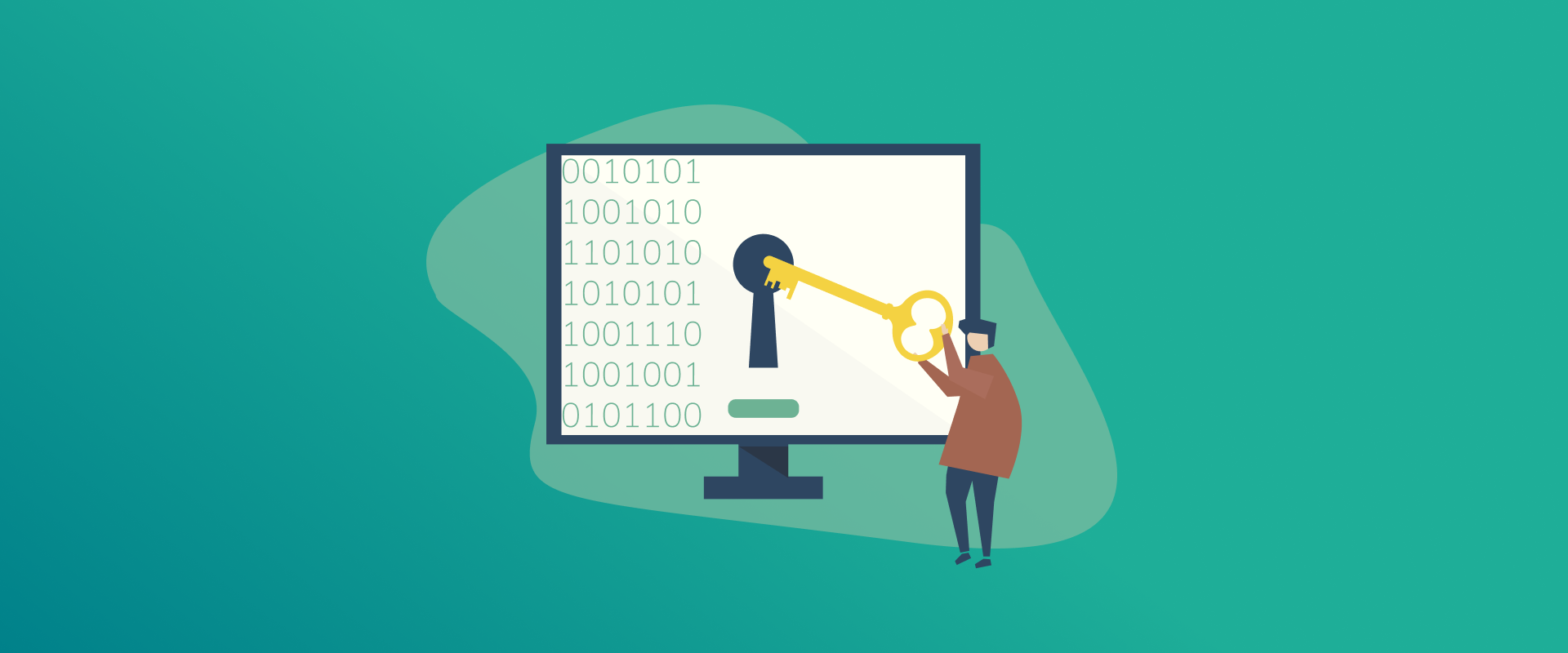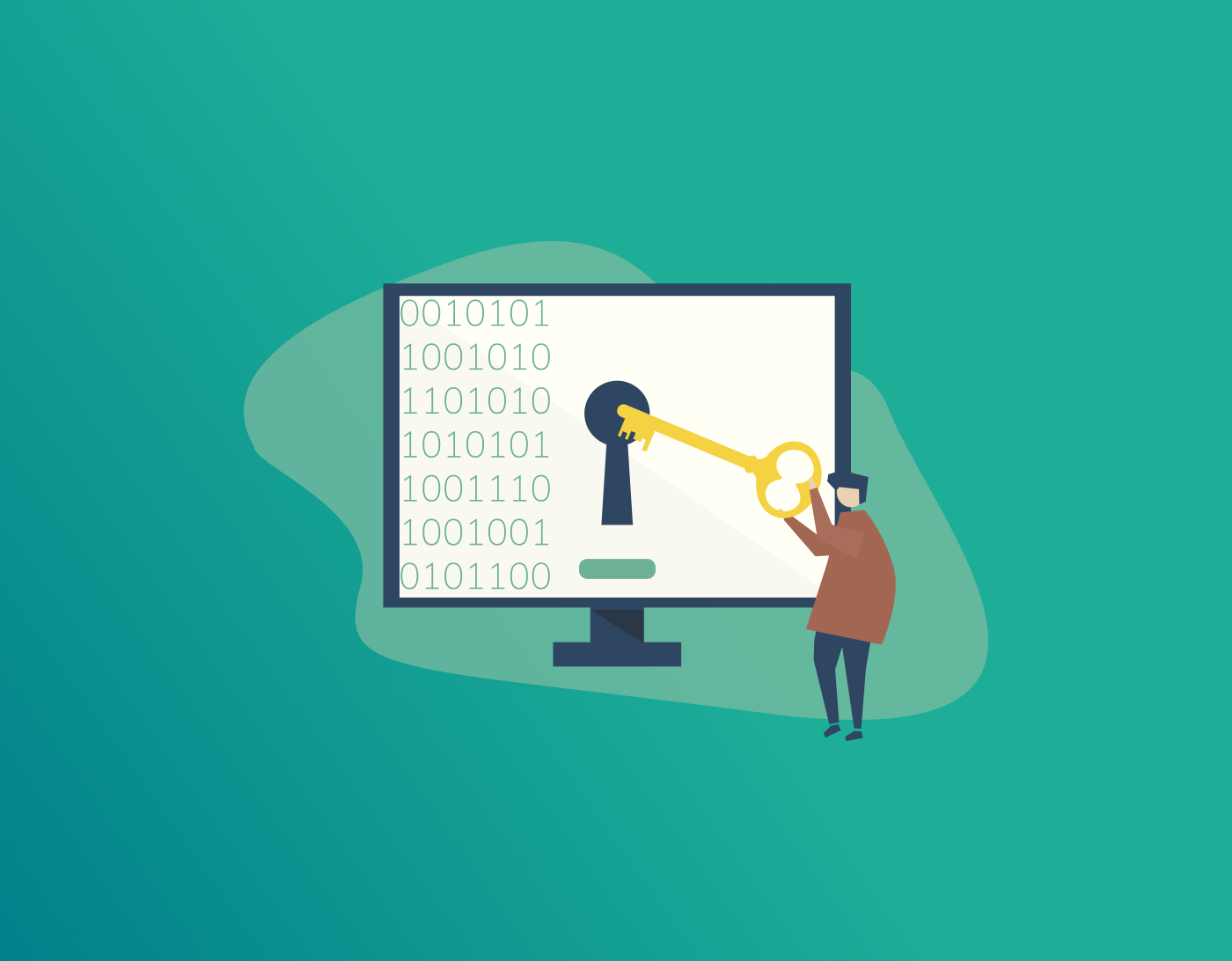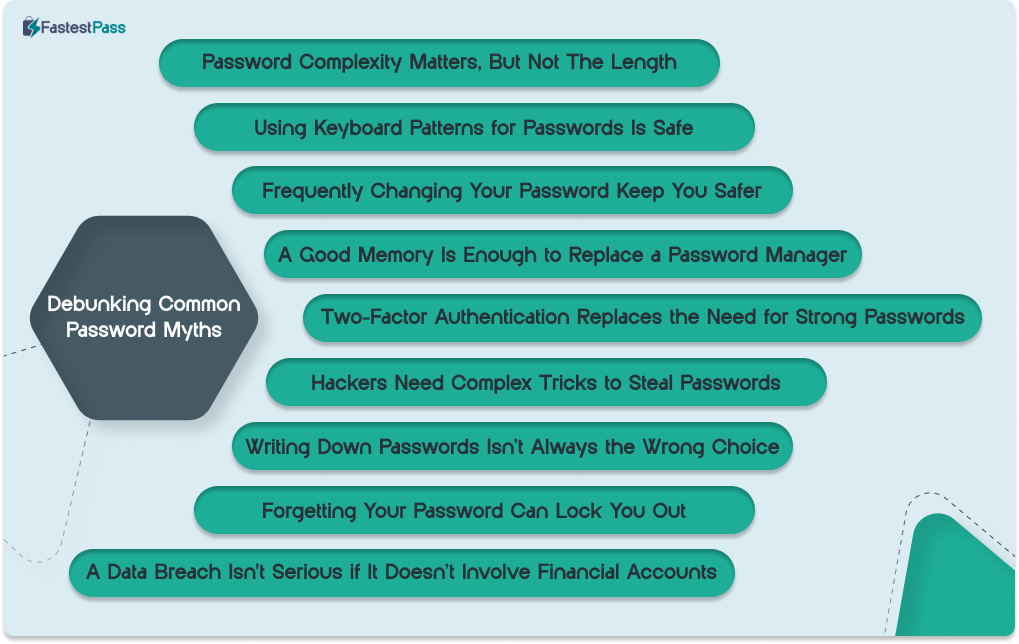
Passwords are the keys to our online sphere, but most users don’t completely understand the concept of a password. Although cybersecurity has advanced significantly. Still, there are myths about password safety, which makes it a lot easier for hackers to break in. However, you don’t have to worry because we are here to clear things up for you.
This is my guide on common password myths debunked. In this article, I will explain the top 10 password myths. Also, I will show you simple ways to better protect your online accounts.
Note: Just one hacked or reset password can turn into a serious security issue, costing companies thousands of dollars and damaging their reputation for years. That’s why it’s so important to protect your business’s private information. A simple way to do this is by using tools like FastestPass, which offers advanced password management features to keep your data safe.
Debunking Common Password Myths
Talking about passwords, you will come across lots of trumped-up stories. This misinformation can put your online security at risk. In fact, a number of online users still believe in password myths. This false belief can leave their accounts vulnerable to hackers. Therefore, in today’s guide, I will outline the most common password myths and show the reality behind them to help you better protect your digital life.
1. Password Complexity Matters, But Not The Length
The number one password myth that you may have heard is that the complexity of passwords matters, but not the length. It means that if a password is composed of capital letters, symbols, and numbers, it is strong, irrespective of its length.
Here’s the truth: The length of a password is much more significant than its complexity. It indicates that a longer password is more secure. Moreover, a long password is much more challenging to crack, even if it doesn’t contain special characters. So, my advice would be to create a password with at least 12 characters and focus on making your password long rather than overly complicated.
2. Using Keyboard Patterns for Passwords Is Safe
Another usual password myth is the belief that creating a password using a keyboard pattern—like “qwerty” or “123456”—is secure. However, in reality, such passwords are the most easier for hackers to guess. In fact, such passwords can be cracked quickly using algorithms or brute-force attacks. If you don’t know much about a brute-force attack, I recommend reading this guide to understand how it happens.
Besides, you should always avoid using obvious keyboard patterns or common sequences. Instead, go for randomly generated passwords or strong passphrases. A password manager can help create and store these, making it much simpler to stay secure.
3. Frequently Changing Your Password Keep You Safer
It might seem like changing your password often is a smart way to stay safe, but studies show it can actually do more harm than good. When people are forced to change passwords frequently, they tend to choose simpler ones that are easier to remember. Even worse, they might fall into predictable habits, like just adding a number at the end or swapping a letter for a symbol.
Here’s the truth: it’s better to create strong, unique passwords for each account and stick with them. To make things easier, use a password manager to generate and store complex passwords so you don’t have to remember them all yourself.
4. A Good Memory Is Enough to Replace a Password Manager
Some people feel confident memorizing their passwords and think they don’t need a password manager. However, relying on memory often means using the same password for multiple accounts or following simple patterns that hackers can easily guess.
The truth is password managers make life easier and safer. They help you create strong, unique passwords for every account and save them for you. Plus, they can auto-fill your login details, saving you time and cutting down on mistakes.
5. Two-Factor Authentication Replaces the Need for Strong Passwords
Two-factor authentication (2FA) is a great way to add extra security, but it doesn’t mean you can ignore strong passwords. If your password is weak, hackers might still find a way in, especially if they use tricks like social engineering or SIM-swapping to get past 2FA.
The truth is that 2FA works best as an extra layer of protection, not a replacement for strong passwords. To stay as safe as possible, always use strong, unique passwords along with 2FA.
6. Hackers Need Complex Tricks to Steal Passwords
Many people imagine hackers as experts typing complex codes to break into accounts, but that’s not usually the case. In reality, most hackers use simple tricks like phishing emails, guessing passwords through brute force, or using stolen login details from other websites.
The truth is hackers often take advantage of human mistakes instead of complicated tech flaws. That’s why using a password manager is so helpful. It creates and stores strong, unique passwords for each account, making it much harder for hackers to get in with these easy methods.
7. Writing Down Passwords Isn’t Always the Wrong Choice
Writing down passwords might seem old-fashioned and risky, especially in today’s digital world. But sometimes, having a password written down and kept safely in a secure spot, like a locked drawer, can be a useful backup.
The truth is, writing down passwords isn’t always a bad idea—as long as they’re stored securely. Still, using a password manager is a much better and safer choice for most people, as it keeps all your passwords protected and easy to access.
8. Forgetting Your Password Can Lock You Out
This is only true in rare cases. For most people, recovering a forgotten password is pretty easy on most platforms.
Whether it’s social media like Instagram or entertainment sites like Spotify and PlayStation Network, you can usually reset your password in just a few simple steps.
9. A Data Breach Isn’t Serious if It Doesn’t Involve Financial Accounts
A lot of people think that only financial accounts matter when it comes to security, but that’s not true. Even non-financial accounts can be risky if hacked. A breach could lead to identity theft, spam, or even targeted attacks.
The truth is, every account holds valuable info—whether it’s your email or social media. For example, if someone hacks your email, they could reset passwords for your other accounts. That’s why it’s important to use strong passwords and regularly check your accounts for anything suspicious.
Conclusion – Common Password Myths Debunked
These were the most Common Password Myths Debunked. Have you heard any other cybersecurity myths? Sharing what we know and helping others learn about digital safety is super important. Cybersecurity isn’t a one-time topic—it’s an ongoing conversation where we can all help each other stay safer online. Breaking down common myths about passwords and online security is key to protecting ourselves. And remember, creating a strong password doesn’t have to be hard—it can still be easy to remember if you use the right tricks. So, stay informed, stay alert, and keep your online world secure!
Secure and Create Stronger Passwords Now!
Generate passkeys, store them in vaults, and safeguard sensitive data!
Subscribe to Our Newsletter
Receive the latest updates, trending posts, new package deals,and more from FastestPass via our email newsletter.
By subscribing to FastestPass, you agree to receive the latest cybersecurity news, tips, product updates, and admin resources. You also agree to FastestPass' Privacy Policy.








